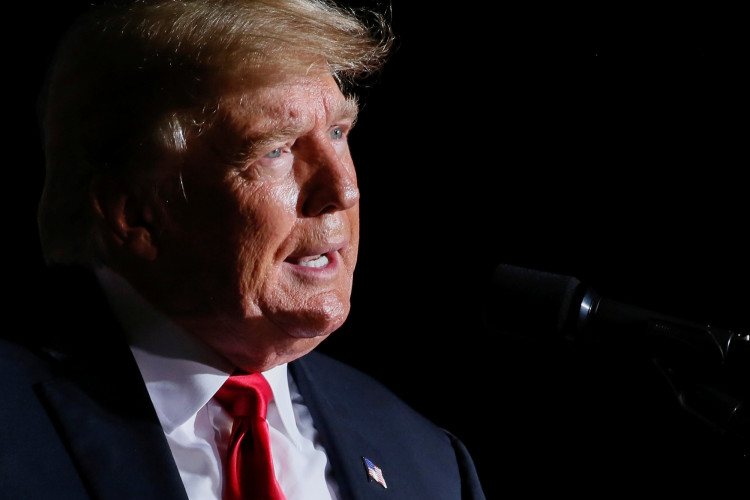Representative Andy Ogles, a Republican from Tennessee, has introduced a resolution to amend the U.S. Constitution to allow President Donald Trump-and any future president-to serve a third term in office. The proposal comes just days after Trump was sworn in for his second, non-consecutive term as the 47th President of the United States, reigniting debate over the 22nd Amendment, which limits presidents to two terms.
Ogles unveiled his proposal Thursday, stating that Trump's leadership is indispensable to reversing the challenges faced by the country. "He [Trump] has proven himself to be the only figure in modern history capable of reversing our nation's decay and restoring America to greatness," Ogles said in a press release. "It is imperative that we provide President Trump with every resource necessary to correct the disastrous course set by the Biden administration."
The 22nd Amendment, ratified in 1951 in response to Franklin D. Roosevelt's unprecedented four-term presidency, currently limits any individual to two terms as president. Ogles' resolution proposes revising the amendment's language to read: "No person shall be elected to the office of the President more than three times ..."
Ogles clarified that the amendment would only benefit presidents who served non-consecutive terms, like Trump. Presidents who served two consecutive terms, such as Barack Obama or George W. Bush, would remain ineligible for a third term.
The proposal has sparked immediate backlash from Democrats and constitutional scholars. Representative Steve Cohen, a Democrat from Tennessee and member of the House Judiciary Committee, dismissed the idea as unnecessary and chaotic. "Two terms is enough chaos for any nation to endure," Cohen told Axios.
Representative Dan Goldman, a New York Democrat, criticized the resolution as part of a larger pattern of normalizing extreme ideas. "By now, Donald Trump's pattern is predictable: 'joke' about something unconstitutional or authoritarian; normalize the 'joke'; allow sycophantic Republicans to adopt the 'joke' as a serious idea until it becomes MAGA orthodoxy," Goldman said in a statement to Newsweek.
Trump has previously expressed openness to the idea of serving beyond two terms, often framing his remarks as lighthearted comments. Shortly after his reelection in 2024, Trump told House Republicans, "I suspect I won't be running again, unless you say, 'He's so good, we've got to figure something else.'"
Critics argue that the resolution is a distraction from more pressing issues. Representative Becca Balint, a Democrat from Vermont, suggested the proposal is more about political theater than governance. "I don't think [Ogles] wants to talk about the campaign finance fraud that [Trump] is accused of and would like us instead to focus on what a committed Trump sycophant he is. Truly pathetic. Voters from Tennessee deserve so much better," she said.
Passing a constitutional amendment is an arduous process requiring broad bipartisan support. The proposal must be approved by two-thirds of both the House and Senate or by two-thirds of state legislatures calling for a constitutional convention. Afterward, it must be ratified by three-fourths of state legislatures or state conventions. Few amendments clear these hurdles, making the resolution more symbolic than practical at this stage.
The resolution's introduction coincides with ongoing conversations about Trump's long-term political ambitions. Though Trump has publicly stated he would not support challenging the 22nd Amendment in the past, he has recently mused about alternative scenarios that could extend his influence.
One such scenario, floated by Philip Klinkner, a government professor at Hamilton College, involves Trump running for vice president on a ticket with current Vice President JD Vance. Should Vance resign or become incapacitated, Trump could ascend to the presidency without violating the 22nd Amendment, which only prohibits being elected to the office more than twice.
Another potential strategy involves a family member running for president while Trump operates as a de facto leader. Critics warn these ideas could undermine the intent of the Constitution's term limits and invite further polarization.
Despite the backlash, Ogles remains steadfast in his belief that Trump's leadership warrants constitutional reconsideration. "This amendment would allow President Trump to serve three terms, ensuring that we can sustain the bold leadership our nation so desperately needs," he said.






